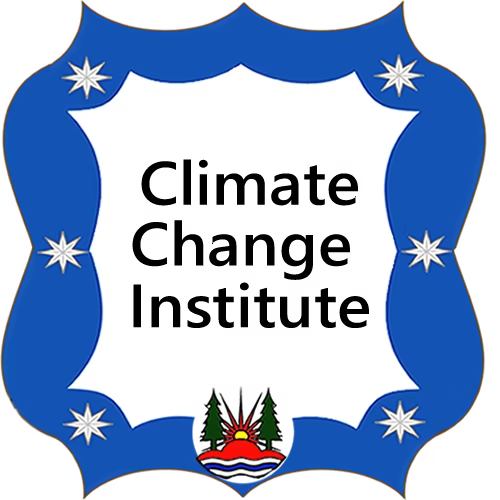Plastic products have been marketed to us as innocuous items of convenience. Plastic bags, food containers, candy wrappers, packaging of all kinds, meant to make life easier on the go, or to protect our purchases from damage. A cheap and forgettable addition to our increasingly cluttered lives. But of course, these petrochemical by-products are far from harmless and they have now been produced in such abundance that we’re drowning in plastic pollution at every stage of the plastic lifecycle.
The price of this supposedly convenient lifestyle of excess and disposal includes a long list of costs, and the harmful impacts of the plastics industry are not felt equally. Indigenous, Black and other equity-denied communities are facing the biggest burdens of plastic pollution.
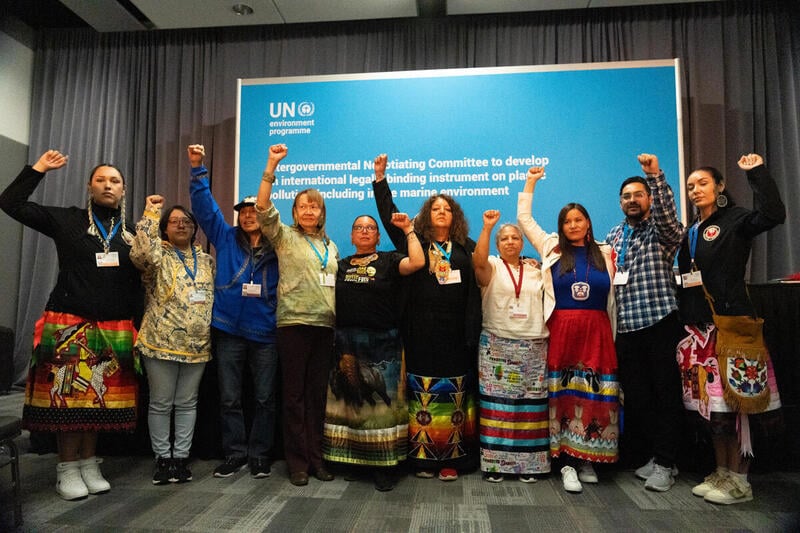
Making Plastic
You can’t really talk about plastic without talking about where it comes from and 99 percent of plastic is made from fossil fuels. That’s right, the same fossil fuels that are warming our planet and contributing to catastrophic climate change, extreme weather, and putting ecosystems and communities in peril. So the plastic trash that ends up as litter in our neighbourhoods, in the stomachs of whales, or sitting in a landfill forever, is a literal climate culprit, too.
Plastic production from climate destroying petrochemicals is just the beginning. The creation of plastic products involves the use of over 16,000 chemicals, including Benzene (a known cancer-causing carcinogen), which puts facility workers and nearby communities at risk of health impacts. Earlier this year, Aamjiwnaang First Nation declared a state of emergency after emissions from a plastic plant spiked so high that it resulted in a temporary shut down of the facility. This caused illnesses in the community with absolutely no forewarning from the plastic plant operators or the government.
Using Plastic
The chemicals used to make plastics linger far beyond the production stage. Once we’re using plastics products – especially when food is involved – we’re exposing ourselves to a slew of chemicals that have been linked to cancer, neurotoxicity, endocrine disruption, and more. Believe it or not, science still hasn’t caught up with the long term impacts plastics could have on our health, but the UN Environment program has listed ten groups of chemicals they deem of “major concern due to their high toxicity and potential to migrate or be released from plastics.”
Shockingly, microplastics are being found in the air we breathe, the food we eat, and they’re now showing up in blood and breastmilk. Plastics in both macro and micro form are polluting our bodies, once again bringing into question whether the convenience the industry is selling us is truly worth it.
Trashing Plastic
Plastic disposal is its own rollercoaster of confusion and frustration. Governments and industry are selling us on recycling, but as Greenpeace Canada’s report from 2020 states, Plastic recycling: That’s not a thing. Less than nine percent of plastic that is made is actually recycled, leaving us with literally tonnes of plastic waste that undoubtedly ends up in our communities, in landfills, in our bodies, or elsewhere where it continues to pollute. Plastic recycling is, in fact, a scam.
Even if recycling had a better track record, recycling programs, or waste disposal programs in general, are not available to everyone. In many rural, remote, or fly-in communities in Canada, residents rely on taking their trash to the dump, or it’s incinerated. In Nova Scotia, landfills and dumps are more likely to be near Mi’kmaw and Black communities, exposing them to increased pollutants from the sites. Whether it stays at the dump or is burned out of sight, the many chemicals in plastic leach into the air, water, and land, allowing the cycle of pollution to continue on. The Neskantaga First Nation is one of many Indigenous communities that has experienced this exact dilemma. Facing multiple impacts of colonial imposition, the community has lived through decades of boil water advisories and as a result has been left with years of plastic trash from having to rely on bottled water. With no recycling or appropriate disposal facility, the community is left with all that waste and little support.
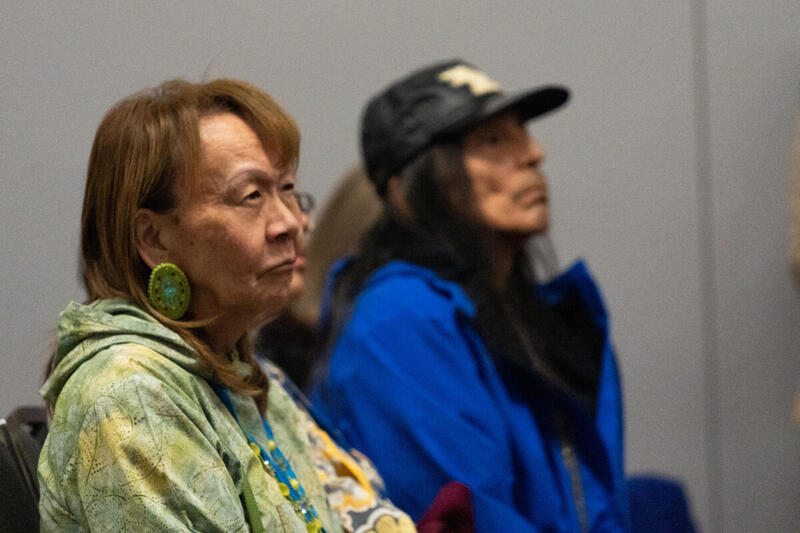
—
“What if humans designed products and systems that celebrate an abundance of human creativity, culture, and productivity? That are so intelligent and safe, our species leaves an ecological footprint to delight in, not lament?” This quote from William McDonough’s, Cradle to Cradle: Remaking the Way We Make Things, illustrates what a future free from plastic trash could look like. What if we had done things differently? What if we had a cradle to cradle re-use based economy instead of the cradle to grave chaos we’re in now? How do we get out of this mess?
Right now, global plastics treaty negotiations are taking place in Busan, South Korea, and it’s not an understatement to say that this could be a game-changing moment to address the harms of plastic from production all the way to disposal. Impacted community members, political decision makers, industry leaders, environmental organizations and activists from around the world are gathered to discuss and agree on a global treaty.
Members of Aamjiwnaang First Nation are in Busan this week, and were also present at INC4 plastic treaty negotiations earlier this year in Ottawa. It was during the Ottawa meeting that a state of emergency was declared due to pollution from a plastics plant in their community, resulting in illness and even hospitalization. They are continuing their advocacy to push for long term solutions that will result in a cleaner, healthier community for them and so many others. Their message is clear: “Indigenous Peoples need to be included as equal partners at the table, and in all efforts to tackle the plastics pollution crisis.”
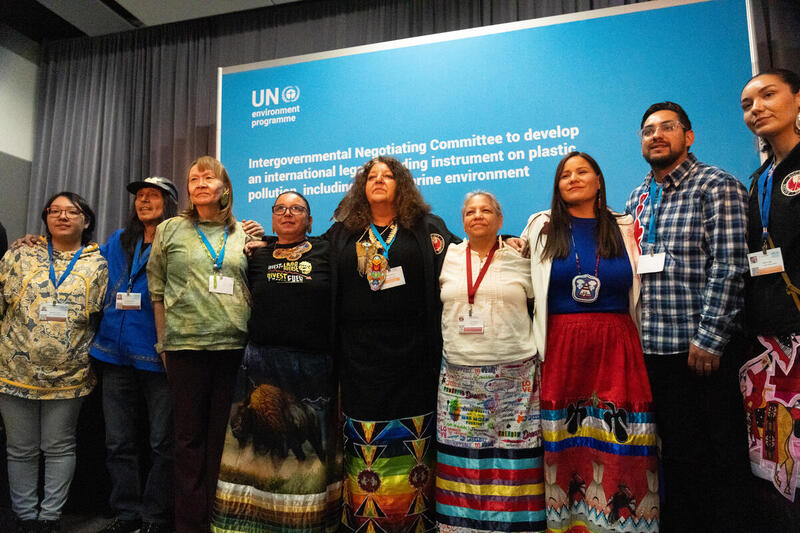
Greenpeace’s role is to ensure that we are tackling plastic pollution right at the source and that the rights and considerations of impacted communities are prioritized. Along with our allies from the global Break Free from Plastic movement, we are working to demand a treaty that will:
- End plastic pollution across its lifecycle, from production to disposal, to protect the environment and human health
- Set a legally binding target to reduce plastic production by at least 75% by 2040 to stay below 1.5° C threshold
- Phase out single-use plastics, starting with the worst offending items like plastic sachets
- Support a just transition to a low-carbon, zero-waste, reuse-based economy
- Be firmly rooted in a human rights-based approach that prioritizes Indigenous rights and knowledge, human health, justice for all impacted communities and reduces inequality.
As individuals, it’s not our fault that things have ended up this way, nor should we be the ones feeling guilty if we can’t dodge plastic in our day to day. We are part of a broken system that props up corporate polluters over people. This makes living hard on so many fronts and, by design, it makes living a sustainable life even harder. But if we’re successful in these crucial negotiations, just imagine the possibilities. I know if my future grocery shops brought home 75% less plastic, I’d simultaneously be in disbelief and filled with joy. I can picture it now. I hope you can too.
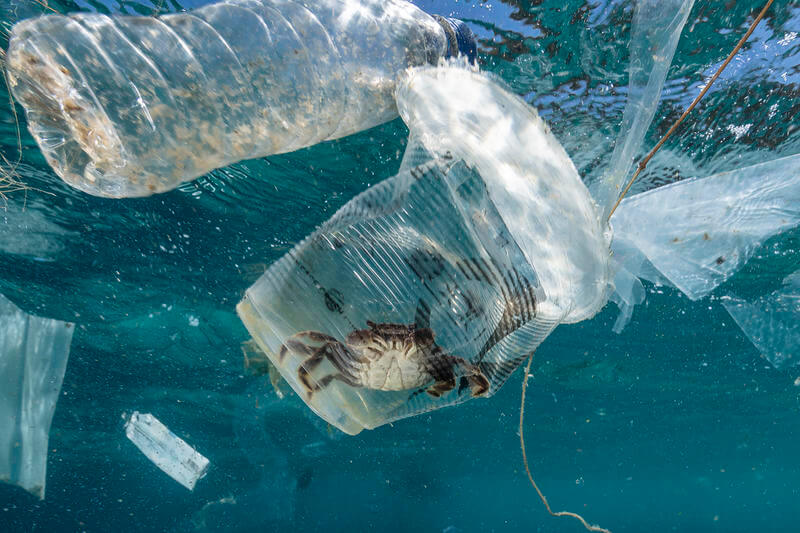
Tell Canada to support a strong Global Plastics Treaty
If world leaders get it right, a strong Global Plastics Treaty has the potential to end the age of plastic – for good. Join the campaign now!
